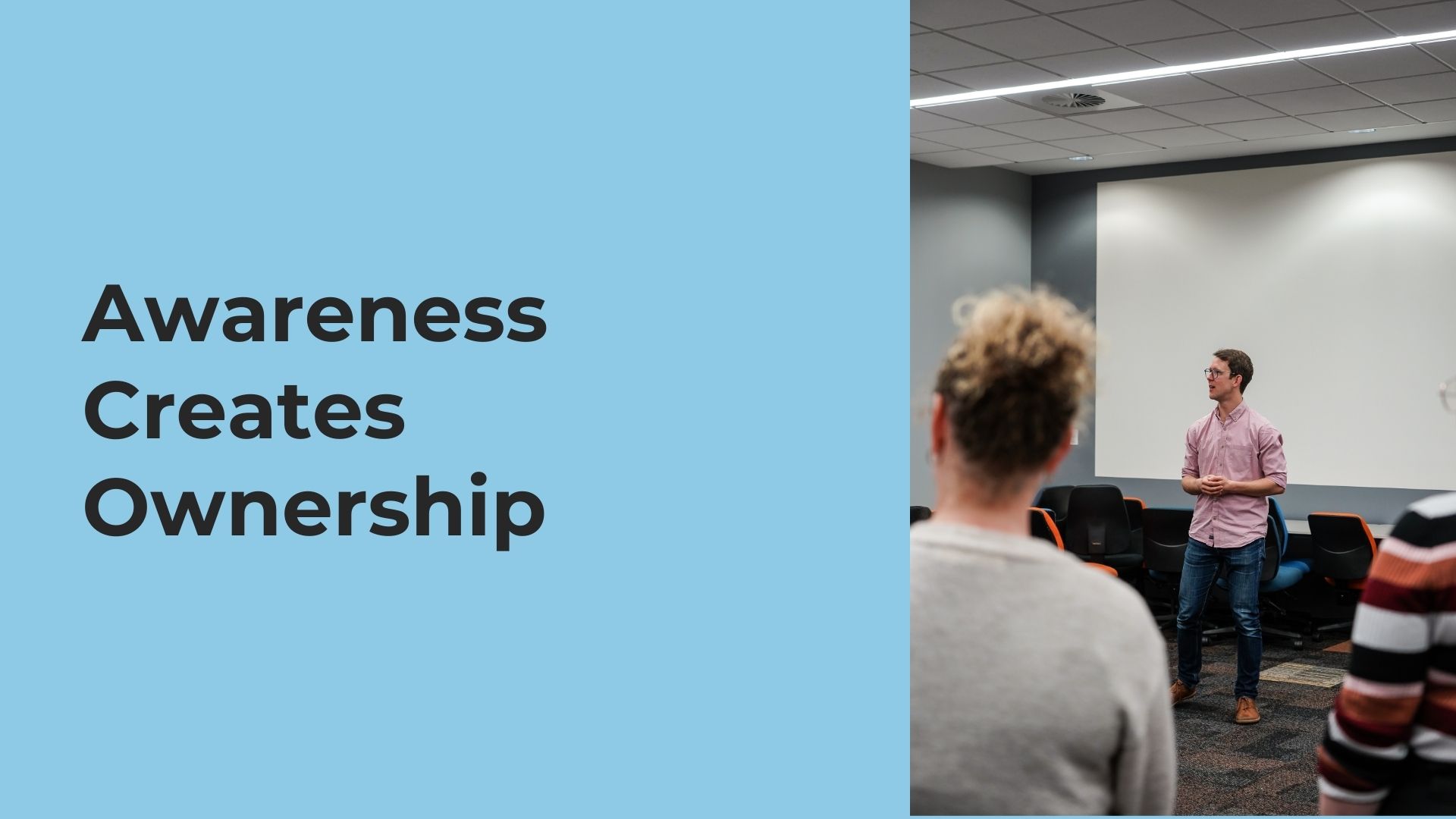|
Let's master your meetings |
|---|
|
I'd love to help your team to master their meetings. Schedule a discovery call if you'd like to learn more about my facilitation training offers. We can do these in-person or online; either works for me. It's all about learning to facilitate with less stress and more impact. And now - onto today's reflections. |
Awareness Creates Ownership

Do you ever wish your people took more ownership?
One of the challenges for leaders is creating a culture of ownership. Just as I dream of the day when my kids tidy their own messes. So too may you dream of teams where people do their best work with little help from you.
Last week I kicked off a training programme for a directorate of Auckland Council who facilitate a lot of collaborative partnerships.
By far their biggest challenge is getting people to take ownership and to take action.
People say they'll do things. But life gets in the way. Other priorities loom larger. Distractions appear. Their good intentions get forgotten until the next meeting.
It's a common challenge. And often we end up blaming ourselves or losing faith in collaboration altogether. "What's the point?" we wonder. Or "What am I doing wrong?"
Awareness creates ownership
I tear my hair out at my kids' nonchalance for things that matter to me.
A tidy floor? They don't care.
Eating all their veggies? Boring.
Not hitting each other with a hockey stick? Wasn't listening, sorry Dad.
As a kid, I don't think I could see dirty floors or comprehend the hours spent making dinner. I didn't take ownership because I lacked awareness.
I reckon the same thing happens in our workplaces. As Liz Weaver said to me in our podcast interview: "We're so busy doing the work that we don't notice the work we're doing."
The three keys to group effectiveness
In the Auckland Council programme, we've been exploring three elements of group effectiveness.
First, there's participation. Are the right people involved? Are they able to contribute well? (Only if those two elements are met can we expect ownership.)
But participation is just a nicety unless we also have progress. My friend and mentor Ann Braithwaite says "Collaboration isn't about everybody getting on... it's about everybody getting on with what matters."
So we need to see participation and progress.
We also need to ground these in purpose. Unfortunately, it's easy to lose sight of purpose amongst our workplace politics.
But when these three elements are balanced - participation, progress and purpose - that's when groups start humming.